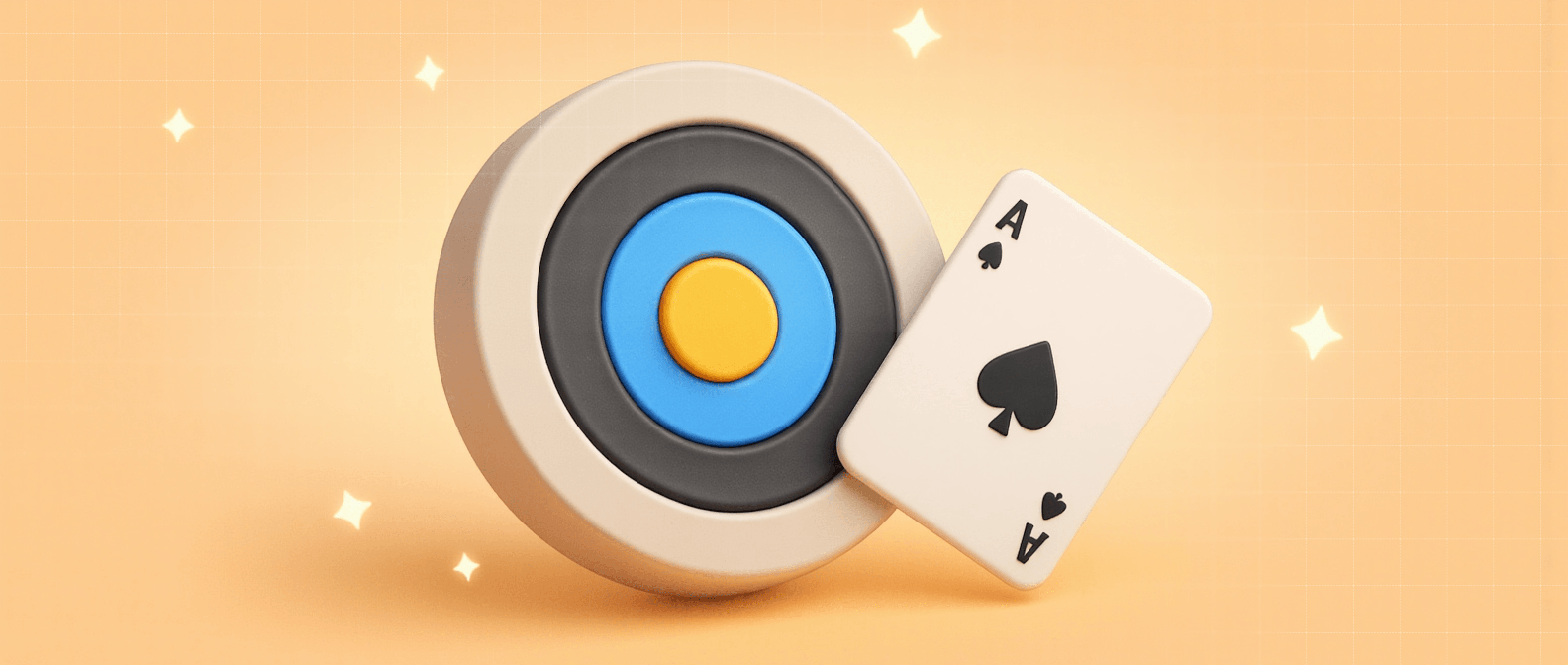
Hit
Hit — is a casino term for either a winning outcome or the action of taking another card. On slots, a hit is any winning spin or triggered feature; in blackjack, to hit means request an extra card. Hits shape payout frequency, volatility, and the overall feel of your gambling session.

Understanding Hit
In gambling, Hit meaning depends on the game but always points to a success event or extra-card action. The Hit definition for slots is a winning spin, free spin trigger, or bonus feature; for tables like blackjack, it’s choosing to take another card. This term matters because hit rate influences your bankroll flow, session length, and risk comfort. Frequent small hits feel steady but may offer lower payouts; rarer hits mean swingier sessions. At 101RTP, you’ll find honest slot and casino reviews plus tools that show how hit frequency and variance affect real play.
Examples of Hit
Here are common ways the term appears across casino games:
- Slots: A $0.50 spin returns $0.20 — a small hit; three scatters trigger free spins — a feature hit.
- Blackjack: You Hit on 12 vs dealer 2 to seek a stronger total, accepting bust risk.
- Craps: The shooter “hits the point” (e.g., rolls 8 again) and gets paid.
- Roulette: “17 hit” means the winning number was 17 on that spin.
FAQs
What is Hit in a casino?
Hit is a flexible gambling term. On slots, it means a winning spin or triggered feature. At the tables, especially blackjack, to Hit is to take another card. Understanding what is a Hit helps a player judge payout rhythm, manage variance, and plan bankroll across games.
How does Hit frequency work on slots?
Hit frequency (hit rate) is the percentage of spins that return any win. Higher hit rate means more frequent small payouts; lower hit rate often pairs with bigger, rarer wins. It affects your session feel and bankroll cycling but not the long‑term RTP, which is set by the game math.
Can I predict when a Hit will happen on slots or roulette?
No. Slots and roulette use random outcomes (RNG for slots, independent spins for the wheel). Past results don’t predict future hits. You can choose games with a hit rate that suits your risk tolerance, but you cannot time or force a hit on any fair casino game.
Is taking a Hit in blackjack always correct?
Not always. Whether you should Hit depends on your hand and the dealer’s upcard. Basic strategy charts minimize house edge by telling you when to hit, stand, double, or split. For example, hitting 12 vs dealer 2 is standard, while hitting 12 vs 6 is usually a mistake.
Do hits change RTP or just volatility?
Hits don’t change RTP. RTP is the long‑term expected payback. Hit rate influences volatility and the pattern of wins: many small hits create smoother sessions, whereas rare large hits create swingy sessions. Choose game volatility and hit frequency that match your bankroll size and entertainment goals.
Why do players and casinos care about Hit statistics?
Hit statistics describe payout distribution and game feel. Players use them to pick stakes, estimate session length, and manage bankroll. Casinos analyze hit patterns to balance game libraries and ensure compliant return profiles. The term helps everyone discuss risk, variance, and what is happening inside a game’s math.
How can 101RTP help me apply Hit meaning in real play?
Use 101RTP’s Slot Simulator to test stake and bankroll against different hit rates and volatility, and read our trusted casino and slot reviews. We translate Hit definition, hit frequency, and variance into clear, practical insights so you can choose games that match your risk comfort.
Can Hits help me clear a casino bonus faster?
Yes—games with higher hit frequency can generate steadier wagering progress with fewer big swings. Pair suitable stakes with eligible games and track results. 101RTP’s Bonus Value Score and Slot Simulator show where hit rate, RTP, and variance align so you can pursue bonuses with better consistency.
